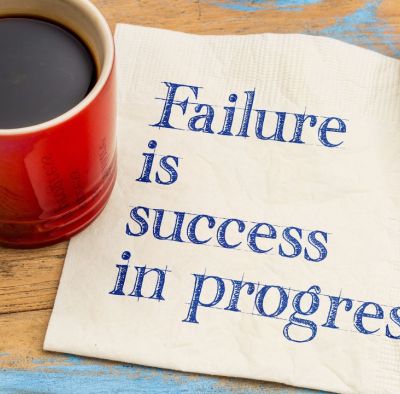UP DESH AI
Sales Jobs
Frontline Jobs
Finance Jobs
Healthcare Jobs
HR Jobs
Engineering Jobs
Operations/Quality Jobs
Creative Jobs
Logistics Jobs
Media Jobs
Construction Jobs
Retail/E-commerce Jobs
Telecom Jobs
BPO/Call Center Jobs
Fashion Jobs
Manufacturing Jobs
Real Estate Jobs
Event Management Jobs
Marketing Jobs
Jobs in Maharashtra
Jobs in Tamil Nadu
Jobs in Jharkhand
Jobs in Union Territory
Tech Support Jobs
I.T Infrastructure Jobs
IT Consulting Jobs
Frontend Development Jobs
Backend Development Jobs
Full Stack Development Jobs
UI/UX Design Jobs
Data Science and AI Jobs
Cloud Computing Jobs
Cybersecurity Jobs
Embedded and IoT Jobs
Testing and QA Jobs
IT Operations Jobs
Mobile App Development Jobs
Robotics and Automation Jobs
Database Jobs
Blockchain Development Jobs
Virtual Reality (VR) and Augmented Reality (AR) Jobs
Top Management Jobs
Marketing Jobs
Product Jobs
Finance Jobs
Technology Jobs
Human Resources Jobs
Browse Jobs
India's Start-Up Ecosystem: A Hotbed of Innovation or a Bubble Waiting to Burst?

Introduction
India's startup ecosystem has garnered global attention as a hotbed of innovation, with a burgeoning number of unicorns and a dynamic entrepreneurial landscape. Cities like Bangalore, Delhi, and Mumbai have become the epicenters of startup activity, attracting significant investment and talent from around the world. The government has also played a crucial role in fostering this ecosystem through initiatives like "Startup India" and the liberalization of regulations.
However, the rapid growth of startups in India has also raised concerns about sustainability. While startups have driven innovation and job creation, they face unworkable challenges, including high failure rates, lack of funding, and market competition. The urgency of focusing on sustainable business practices is becoming increasingly evident as the industry matures. Moreover, the inevitable market correction, as investors become more cautious, could pose a significant risk to the ecosystem. The underserved entrepreneurs in Tier-2 and Tier-3 cities also face unique challenges, including limited access to funding and mentorship.
India's startup ecosystem has been a significant driver of economic growth, contributing to job creation, technological advancements, and the development of new business models. Startups like Flipkart, OYO, Paytm, and Zomato have not only disrupted traditional industries but have also created thousands of jobs, both directly and indirectly. These companies have attracted significant investment from domestic and international investors, further fueling the growth of the ecosystem.
The rise of startups has also fostered a culture of innovation and entrepreneurship in India. Young entrepreneurs are increasingly willing to take risks and challenge the status quo, leading to the development of new products and services that cater to the needs of a rapidly changing market. This culture of innovation has been supported by the availability of venture capital, government initiatives, and the growth of incubators and accelerators.
In addition to creating jobs, startups have also played a crucial role in addressing some of India's most pressing challenges, such as financial inclusion, healthcare access, and education. For example, fintech startups like Paytm and PhonePe have revolutionized digital payments, making it easier for millions of Indians to access financial services. Similarly, edtech startups like Byju's and Unacademy have transformed the education sector, providing affordable and accessible learning solutions to students across the country.
Despite the success of a few high-profile startups, the reality is that the majority of startups in India face unworkable challenges that hinder their long-term sustainability. One of the most significant challenges is the high failure rate. It is estimated that up to 90% of startups fail within the first five years, often due to factors such as lack of market demand, poor business models, and inadequate funding.
Funding remains a critical challenge for many startups, particularly in the early stages. While there is no shortage of venture capital for promising startups, securing funding can be difficult for those without a proven track record or connections to the right investors. Moreover, the concentration of funding in a few high-growth sectors, such as fintech and e-commerce, leaves many startups in other industries struggling to attract investment.
The lack of funding is particularly acute for startups in Tier-2 and Tier-3 cities, where access to venture capital and mentorship is limited. Entrepreneurs in these regions often face additional challenges, such as lack of infrastructure, limited access to talent, and inadequate support networks. As a result, many promising startups in these areas are unable to scale and reach their full potential.
The urgent need for startups to focus on sustainable business practices cannot be ignored. As the ecosystem matures, investors are becoming more cautious, and the days of easy money and inflated valuations may be coming to an end. Startups that prioritize growth at the expense of profitability and sustainability risk becoming casualties of a market correction.
Sustainable business practices involve building a solid foundation for long-term success, including a clear path to profitability, prudent financial management, and a focus on creating value for customers and stakeholders. Startups that adopt these practices are more likely to survive and thrive in the long run, even in the face of economic downturns or market challenges.
There is also an urgent need for startups to address social and environmental challenges. As the impact of climate change becomes more apparent, investors and consumers are increasingly looking for businesses that prioritize sustainability and social responsibility. Startups that can integrate these values into their business models are likely to have a competitive advantage in the future.
The rapid growth of India's startup ecosystem has led to concerns about the possibility of a bubble. The influx of venture capital, coupled with the high valuations of some startups, has raised fears that the market may be overheating. As investors become more cautious, there is a growing risk of a market correction, which could have significant implications for the ecosystem.
A market correction could result in a decline in valuations, making it more difficult for startups to raise funding or achieve successful exits. This could lead to a wave of startup failures, particularly among those that are heavily reliant on external funding. Moreover, a correction could also have a ripple effect on the broader economy, as startups play a critical role in job creation and economic growth.
To mitigate the risk of a bubble, it is essential for startups to focus on building sustainable businesses that can weather market fluctuations. This includes prioritizing profitability, managing cash flow, and avoiding over-reliance on external funding. Investors also have a role to play by adopting a more disciplined approach to funding, focusing on startups with strong fundamentals and long-term growth potential.
While India's major cities have become hubs of startup activity, entrepreneurs in Tier-2 and Tier-3 cities often find themselves underserved. These regions have immense potential, with a large pool of talent and untapped markets, but they also face significant challenges. Access to funding, mentorship, and infrastructure is often limited, making it difficult for startups in these areas to scale and compete with their counterparts in major cities.
Moreover, the concentration of resources in a few urban centers exacerbates regional disparities, leaving many promising startups in smaller cities and towns without the support they need to succeed. To address these challenges, it is essential to promote the development of startup ecosystems in Tier-2 and Tier-3 cities, including the establishment of incubators, accelerators, and venture capital funds focused on these regions.
Government initiatives, such as the Atal Innovation Mission, which aims to foster innovation and entrepreneurship in smaller towns and cities, are a step in the right direction. However, more needs to be done to ensure that startups in these regions have access to the resources and support they need to thrive.
India's startup ecosystem is at a critical juncture. While it has driven innovation, job creation, and economic growth, it also faces significant challenges that must be addressed to ensure its long-term sustainability. The focus must shift towards building sustainable businesses, promoting inclusive growth, and avoiding the pitfalls of a potential bubble.
Startups, investors, and policymakers must work together to create an ecosystem that supports long-term success, particularly for underserved entrepreneurs in smaller towns and cities. By fostering a culture of innovation, sustainability, and inclusivity, India can continue to lead the way as a global hub for entrepreneurship and innovation.
Give your Rating
Categories
Most Viewed
-
 How Social Media Shapes Your Subconscious
Dec 2 '2024, 2:22 PM
How Social Media Shapes Your Subconscious
Dec 2 '2024, 2:22 PM
-
 Why Did I Fail My Interview? (And What to Do Next)
Sep 13 '2024, 1:04 AM
Why Did I Fail My Interview? (And What to Do Next)
Sep 13 '2024, 1:04 AM
-
 The Influence of Social Media on the Indian Job Market: Opportunities and...
Sep 12 '2024, 11:52 PM
The Influence of Social Media on the Indian Job Market: Opportunities and...
Sep 12 '2024, 11:52 PM
-
 How to Create a Killer Curriculum Vitae: A Step-by-Step Guide
Sep 13 '2024, 12:44 AM
How to Create a Killer Curriculum Vitae: A Step-by-Step Guide
Sep 13 '2024, 12:44 AM
-
 India's Tech Industry: Boon or Bane for the Job Market?
Sep 12 '2024, 11:22 PM
India's Tech Industry: Boon or Bane for the Job Market?
Sep 12 '2024, 11:22 PM